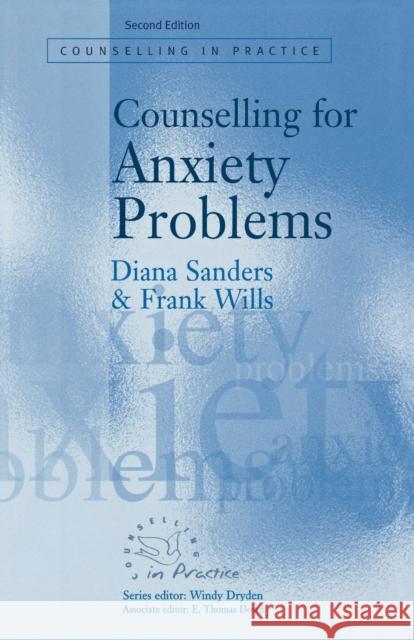Counselling for Anxiety Problems » książka
Counselling for Anxiety Problems
ISBN-13: 9780761965756 / Angielski / Miękka / 2002 / 248 str.
Counselling for Anxiety Problems
ISBN-13: 9780761965756 / Angielski / Miękka / 2002 / 248 str.
(netto: 265,88 VAT: 5%)
Najniższa cena z 30 dni: 246,78
ok. 22 dni roboczych.
Darmowa dostawa!
Any cognitive therapy text which quotes from Alice in Wonderland is off to a good start - and in the case of Counselling for Anxiety Problems, it gets better and better. This is an excellent book written by counselling psychologists, aimed primarily at counselling psychologists. Diana Sanders and Frank Wills are experienced cognitive therapists, who, through various books, are performing a valuable role of building bridges between counsellors and the practice of cognitive therapists. In doing so, they lay to rest many of the misconceptions counsellors may have about cognitive therapy (often based on an 80s version of the therapy), and place particular emphasis on the central importance of therapeutic relationship in cognitive therapy, as in counselling. Their review and discussion of the anxiety disorders is comprehensive and contemporary, as indicated by the number of references from the past five years. Furthermore their clinical experience, as well as their humour, shines through. Although primarily aimed at the counselling market, it will be just as useful for therapists from a variety of backgrounds. I can thoroughly recommend this book' - Amazon Review Anxiety is one of the most common psychological problems for which people seek help. Through research, major advances have been made in understanding the causes of anxiety, the different forms it takes and how problems perpetuate. In turn this has led to the development of more targeted ways of helping sufferers. Based on these findings, Counselling for Anxiety Problems, Second Edition presents accessible and up-to-date guidelines on the most effective ways of helping clients with anxiety problems. The authors outline general methods of working with anxiety sufferers and highlight the issues specific to this client group. Counsellors need to select appropriate interventions depending on the particular problems experienced by each client. The second part of the book therefore shows how to adapt counselling interventions to different forms of anxiety, such as: - panic - worry - agoraphobia - social and other phobias - health anxiety, and - obsessive-compulsive disorder (OCD). Whilst being cognitive in focus, the book is accessible to counsellors from different orientations who wish to broaden their understanding and skills in relation to anxiety. Based on the authors' own clinical experience, the book makes extensive use of detailed case examples to illustrate different ways of formulating and working with anxiety. Counselling for Anxiety Problems, Second Edition is suitable for practitioners of all levels, from those in training to those with more experience who wish to update and refresh their methods of working with anxious clients.











